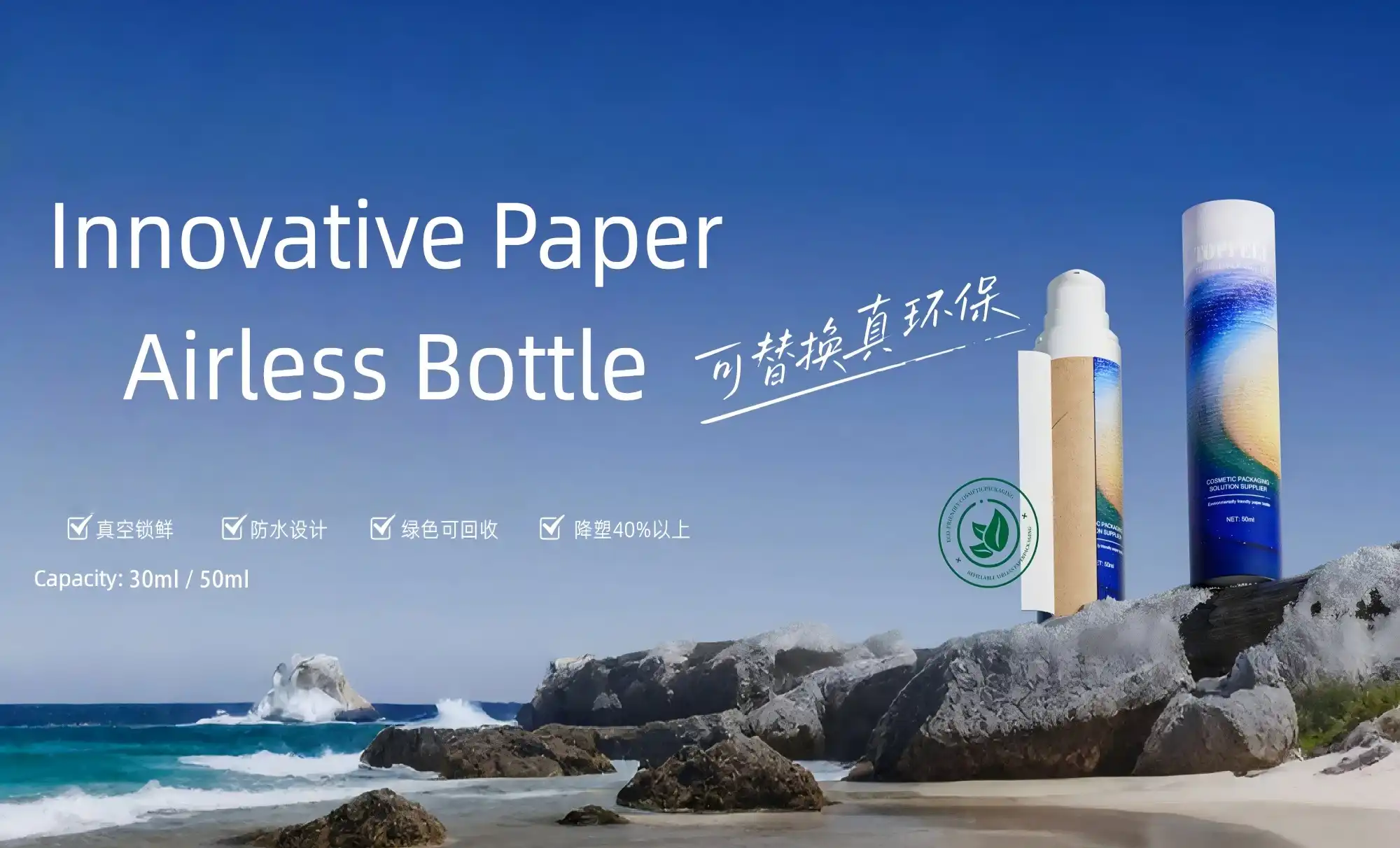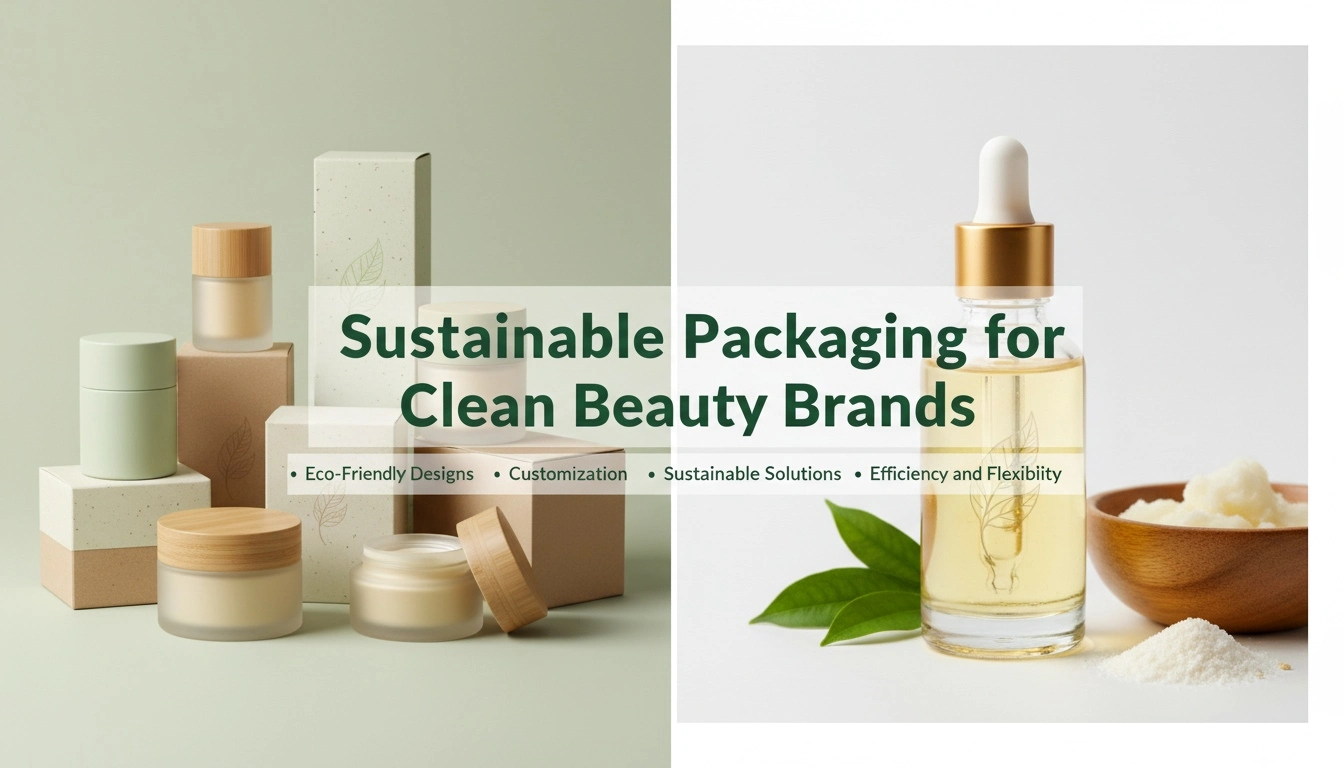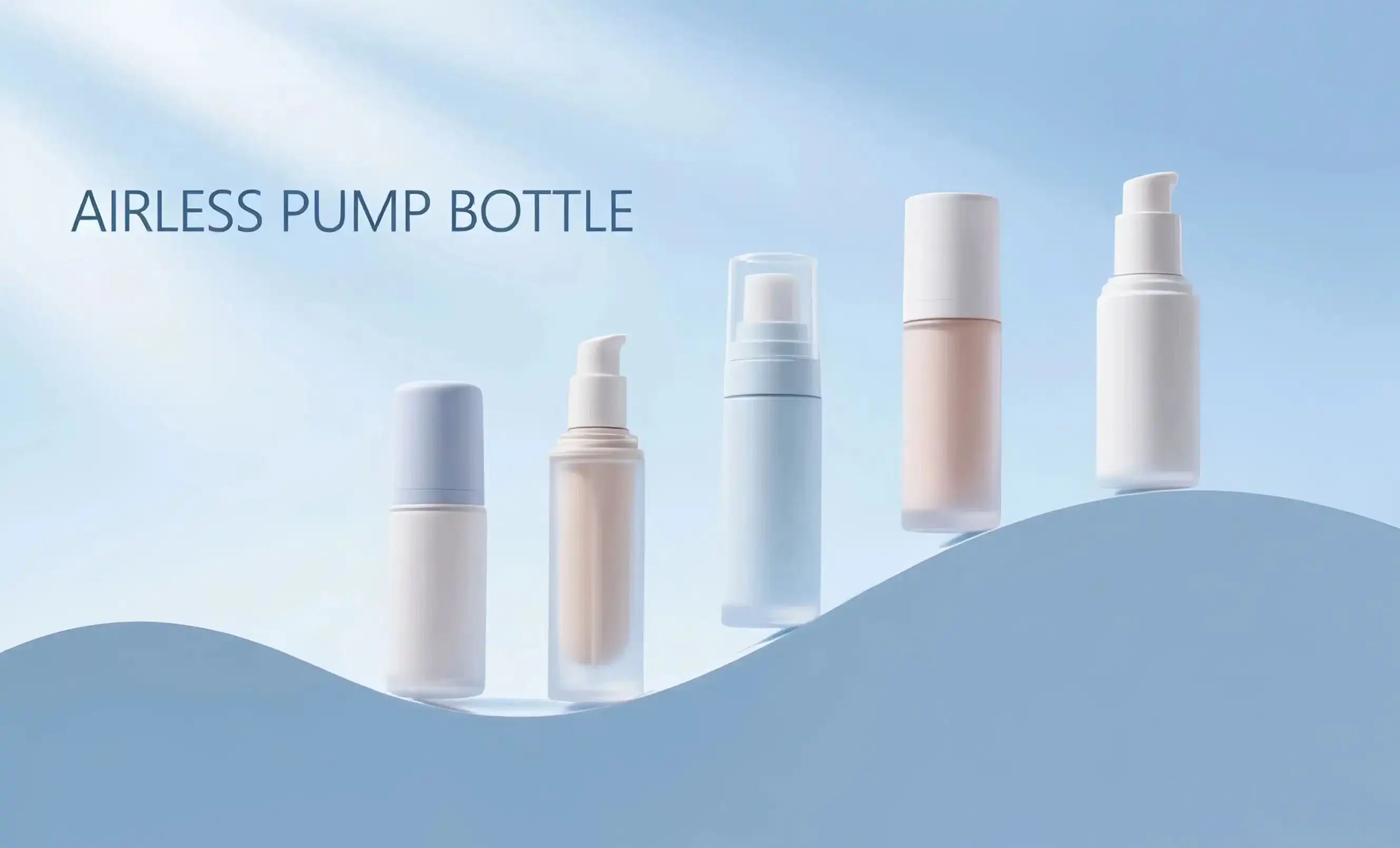How long do plant-based airless bottles take to decompose?
The decomposition time for plant-based airless bottles can vary widely depending on several factors. Let's delve into the specifics:
Factors Affecting Decomposition Time
The rate at which plant-based airless bottles break down is influenced by:
- Material composition: Different plant-based plastics have varying decomposition rates.
- Environmental conditions: Temperature, humidity, and presence of microorganisms play crucial roles.
- Disposal method: Industrial composting facilities vs. home composting or landfills.
Typical Decomposition Timeframes
In optimal conditions, such as those found in industrial composting facilities:
- PLA (Polylactic Acid) bottles: 3-6 months
- Bio-based PE (Polyethylene) bottles: 6-12 months
However, in less ideal conditions like landfills or natural environments:
- PLA bottles: 100-1000 years
- Bio-based PE bottles: Similar to conventional PE, potentially hundreds of years
It's important to note that these timeframes are estimates and can vary based on specific formulations and environmental factors. The stark difference between decomposition times in industrial composting facilities versus landfills underscores the importance of proper disposal methods for these eco-friendly airless bottles.
Certifications to verify biodegradability in cosmetic packaging
To ensure the authenticity of biodegradability claims in cosmetic packaging, several certifications have been established. These certifications provide consumers and businesses with assurance that the packaging meets specific environmental standards.
Key Biodegradability Certifications
Some of the most recognized certifications include:
- Biodegradable Products Institute (BPI) Certification: Verifies that products will biodegrade in a managed compost facility.
- TÜV Austria OK Compost: Certifies products that are biodegradable in industrial composting facilities.
- DIN CERTCO: Offers various certifications for biodegradable and compostable products.
- European Bioplastics Certification: Focuses on certifying biobased and biodegradable plastics.
Importance of Certification in the Cosmetic Industry
For the cosmetic industry, these certifications are particularly significant:
- They provide credibility to biodegradability claims, helping brands build trust with environmentally conscious consumers.
- Certifications guide product developers in choosing truly biodegradable materials for their packaging.
- They help in complying with increasingly stringent environmental regulations in various markets.
When selecting eco-friendly airless bottles for cosmetic products, looking for these certifications can help ensure that the packaging aligns with sustainability goals. However, it's crucial to understand that even certified biodegradable packaging requires proper disposal to achieve its environmental benefits.
Industrial vs. home composting for airless bottle materials
Understanding the difference between industrial and home composting is crucial when discussing the biodegradability of airless bottle materials. Each method has its own set of conditions and capabilities, which significantly impact the decomposition process of eco-friendly packaging.
Industrial Composting
Industrial composting facilities offer controlled environments that are optimized for breaking down biodegradable materials:
- Temperatures are maintained at 55-60°C (131-140°F)
- Moisture levels are carefully regulated
- Oxygen flow is managed to promote aerobic decomposition
- Specialized microorganisms are often introduced to accelerate the process
These conditions allow for the efficient breakdown of many plant-based plastics used in eco-friendly airless bottles. Materials certified for industrial composting, such as those with the "OK Compost Industrial" label, are designed to decompose fully in these settings within a specified timeframe, typically 180 days.
Home Composting
Home composting environments are less controlled and generally less effective for breaking down biodegradable plastics:
- Temperatures are lower, usually not exceeding 40°C (104°F)
- Moisture and oxygen levels can vary widely
- The diversity and quantity of decomposing microorganisms may be limited
As a result, many materials that are biodegradable in industrial settings may not break down effectively in home compost bins. Only materials specifically certified for home composting, such as those with the "OK Compost Home" certification, are likely to decompose fully in these conditions.
Implications for Airless Bottle Materials
The distinction between industrial and home composting has significant implications for the disposal of eco-friendly airless bottles:
- Many plant-based plastics used in airless bottles are only suitable for industrial composting
- Consumers may mistakenly attempt to compost these materials at home, leading to incomplete decomposition
- Clear labeling and consumer education are essential to ensure proper disposal
When developing or choosing eco-friendly airless bottles, it's important to consider the most likely disposal methods available to end-users. If industrial composting facilities are not widely accessible in the target market, opting for materials that can biodegrade in less optimized conditions may be more environmentally beneficial.
Balancing Functionality and Biodegradability
The challenge for manufacturers lies in creating airless bottles that maintain their functional properties (such as air-tightness and product preservation) while still being biodegradable. Industrial composting allows for the use of materials that offer this balance, as they can withstand normal use but still break down under specific conditions. Home compostable materials, while more versatile in terms of disposal, may not always meet the performance requirements of airless packaging.
In conclusion, while eco-friendly airless bottles represent a significant step towards more sustainable packaging solutions, their true biodegradability is contingent on proper disposal methods. The distinction between industrial and home composting highlights the need for clear communication about disposal requirements and the importance of developing infrastructure to support the proper processing of these materials. As the cosmetic industry continues to innovate in sustainable packaging, understanding these nuances will be crucial for both manufacturers and consumers in making environmentally responsible choices.
Are you a skincare or cosmetic brand looking for sustainable packaging solutions that don't compromise on quality? At Topfeelpack, we specialize in advanced airless bottles designed to maintain product effectiveness while prioritizing environmental responsibility. Our commitment to sustainability extends from material selection to energy-efficient manufacturing processes. We offer fast customization, competitive pricing, and quick delivery to meet the dynamic needs of the beauty industry. Whether you're a high-end skincare brand, a trendy makeup line, or a DTC beauty company, our team can provide custom solutions that align with your brand image and sustainability goals. Ready to elevate your packaging game? Contact us at pack@topfeelgroup.com to explore our range of eco-friendly airless bottles and find the perfect fit for your products.
References
- Smith, J. (2022). Biodegradability of Plant-Based Plastics in Various Environments. Journal of Sustainable Packaging, 15(3), 245-260.
- Green, A., & Brown, B. (2021). Certifications for Biodegradable Cosmetic Packaging: A Comprehensive Review. Cosmetic Science Quarterly, 33(2), 112-128.
- Johnson, L. et al. (2023). Industrial vs. Home Composting: Implications for Eco-Friendly Packaging. Environmental Technology & Innovation, 29, 101234.
- European Bioplastics Association. (2022). Bioplastics Market Data 2021-2026. Annual Report.
- Taylor, R. (2021). The Future of Sustainable Packaging in the Beauty Industry. Cosmetics & Toiletries, 136(5), 22-28.
- World Economic Forum. (2023). The New Plastics Economy: Rethinking the Future of Plastics & Packaging. White Paper.


 - 副本_1745399213966.webp)

_1747827716538.webp)

